Seven Things to Consider Before Buying Overseas Property
Submitted by Creveling & Creveling Private Wealth Advisory on July 6th, 2021By Peggy Creveling, CFA, and Chad Creveling, CFA
You're enjoying the change in scenery in a new country and wonder if it's time to take the plunge and purchase property while you're living overseas. Owning overseas property can be a rewarding experience, but it can also have a major impact on your finances. We've put together a list of some areas to consider:

![]()
1. How Long Will You Live There?
Expatriates tend to lead transient lifestyles, so if you'll live in the home for only a few years, you may want to reconsider whether buying property makes sense. Thinking that you'll rent out your home if you need to leave may not be the best plan financially. There are costs involved in being a landlord, and most single units do not make sense as stand-alone investments. Even if you expect to sell when you leave, you may find unfavorable market conditions depressing prices to below what you paid. You'll also need to plan for transaction costs in both buying and selling, which are more expensive to absorb for short-term purchases.
![]()
2. What Legal Protection Do You Have as a Foreigner?
Many expats are surprised to find out how much laws and their enforcement differ in their newly adopted country versus their homeland. For example, local laws may not shield you against breach of contract, incomplete work, late delivery, cost overruns, developer insolvency, or false advertising. In some places, you may not be allowed to own land, and there may not even be escrow accounts to protect your down payment until the purchase is complete. Even where the laws are clear and fair, enforcement can be an issue. Time spent protecting yourself is well worth it—hire a good lawyer if needed.
![]()
3. What Taxes Are Involved?
To make a good decision, you'll want to understand how you may be taxed on any income or gains on your property, both in your country of residence and your home country. If enforcement of tax laws is lax or ambiguous, don't count on this remaining the case forever. Remember also that tax laws change, so if you decide to buy, you'll want to keep abreast of current laws as they apply to your situation.
![]()
4. How Developed Is the Market for Used Homes When You're Ready to Sell?
The market for newly built houses may be hot, but the secondary market may be extremely illiquid. Most buyers expect their property's value to go up before they sell, yet in certain markets there's a "used car” discount that needs to be factored in, especially if the unit is a condo and the other project owners haven't been paying their maintenance fees. For price comparisons between "new” and "used,” check out the secondary market and talk to expats who have completed a sale of their unit.
![]()
5. Remember That Real Estate Agents Are Salespeople, Not Advisors
Being a salesperson is an admirable profession, but problems occur when you depend on one for advice. Brokers cannot be counted on to provide reliable information or analysis in fair-market property values, ownership or tax laws, future zoning changes, or market supply and demand. These are areas you'll want to check out independently and take responsibility for. Your broker isn't getting paid to take an interest in your long-term welfare.
![]()
6. Renting Can Be Cheaper
While there's a cost to renting, there are also costs involved in ownership. These can include borrowing, maintenance and insurance, taxes, and legal, broker, and common-area fees. The opportunity cost of having a deposit tied up in a property where the overall return underperforms other investment options is also sometimes overlooked. Finally, don't forget the real cost of loss of flexibility. You may find yourself tied into a given location that no longer suits your situation, simply because you can't afford to sell.
![]()
7. If You're Planning to Buy-to-Let, Do the Numbers First
When you evaluate a property as an investment, you'll want to calculate an expected internal rate of return (IRR) based on the estimated net income after tax over the time frame you expect to own the property. Consider all income—and all costs. Err on the pessimistic side when you factor in costs like vacancies, maintenance, management fees, and insurance. Your estimated IRR should be higher than your cost of borrowing for an investment to make sense. And if you're paying cash, your expected IRR should be higher than the expected return for other investments you might otherwise make. Finally, be sure to factor in an illiquidity premium because unlike the stock market, you can't simply sell one share of your investment property if you need to raise funds.
Additional Resources
Considering Buying a Home Overseas? Five Reasons Why Renting May Be a Better Option for Expats
Expat Case Study: Evaluating a Buy-to-Rent Condo Investment
This article is a revised and updated version of ones that have appeared previously on www.crevelingandcreveling.com
About Creveling & Creveling Private Wealth Advisory
Creveling & Creveling is a private wealth advisory firm specializing in helping expatriates living in Thailand and throughout Southeast Asia build and preserve their wealth. The firm is a Registered Investment Adviser with the U.S. SEC and is licensed and regulated by the Thai SEC. Through a unique, integrated consulting approach, Creveling & Creveling is dedicated to helping clients cut through the financial intricacies of expat life, make better decisions with their money, and take the steps necessary to provide a more secure future.
Copyright © 2021 Creveling & Creveling Private Wealth Advisory, All rights reserved. The articles and writings are not recommendations or solicitations, and guest articles express the opinion of the author; which may or may not reflect the views of Creveling & Creveling.

